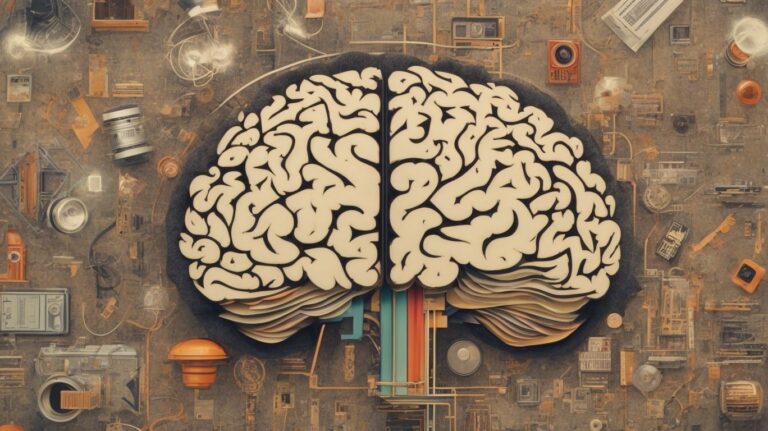Puberty is a time of significant change in a young person’s life, both physically and psychologically. In this article, we will explore the various aspects of puberty from a psychological perspective.
From the physical changes such as the growth spurt and development of sexual characteristics to the psychological changes including cognitive development and emotional shifts, we will delve into how puberty affects mental health.
We will discuss how parents can provide support and understanding to help their child navigate through this transformative period. So, let’s dive into the world of puberty and its psychological impact.
Contents
- 1 Key Takeaways:
- 2 What is Puberty?
- 3 What are the Physical Changes during Puberty?
- 4 What are the Psychological Changes during Puberty?
- 5 How Does Puberty Affect Mental Health?
- 6 How Can Parents Help Their Child During Puberty?
- 7 Frequently Asked Questions
- 7.1 What is puberty from a psychological perspective?
- 7.2 When does puberty typically begin?
- 7.3 How does puberty affect a person’s self-image and self-esteem?
- 7.4 What are some common psychological challenges that can arise during puberty?
- 7.5 How can parents and caregivers support their child’s psychological well-being during puberty?
- 7.6 Are there any long-term psychological effects of puberty?
Key Takeaways:
- Puberty is a natural and necessary stage of development that involves physical, psychological, and emotional changes.
- During puberty, there is a growth spurt, development of sexual characteristics, and changes in body composition.
- Puberty can have a significant impact on mental health, including an increased risk of disorders and challenges with self-esteem and body image.
What is Puberty?
Puberty, a crucial stage of adolescent development, marks the onset of physical and psychological changes driven by hormonal maturation.
During this period, the body undergoes significant physical transformations influenced by hormonal shifts, including the development of secondary sexual characteristics such as breast growth in females and facial hair in males.
Psychologically, adolescents experience cognitive and emotional changes as they navigate self-identity, social relationships, and sexuality. These changes are closely linked to the secretion of hormones such as estrogen and testosterone, which play a pivotal role in shaping an individual’s behavior, mood, and mental health during this formative phase of life.
What are the Physical Changes during Puberty?
The physical changes during puberty encompass a range of transformations influenced by hormonal fluctuations, including growth spurts and the development of primary and secondary sexual characteristics.
Growth Spurt
The growth spurt during puberty signifies a rapid and substantial increase in physical stature and overall development, primarily influenced by surges in hormonal activity.
During this period, the body experiences a surge in the production of growth hormone, which stimulates the growth of bones and muscles.
The hormonal changes also lead to the development of secondary sexual characteristics, such as the deepening of the voice in boys and the growth of breasts in girls.
The release of sex hormones, such as estrogen and testosterone, plays a crucial role in the maturation of reproductive organs and the regulation of the growth spurt.
These hormonal fluctuations result in significant changes in body composition and the onset of sexual maturity.
Development of Primary and Secondary Sexual Characteristics
The development of primary and secondary sexual characteristics during puberty signifies the maturation of reproductive organs and the emergence of secondary sexual traits, driven by hormonal shifts.
During puberty, the hypothalamus stimulates the pituitary gland to produce gonadotropin-releasing hormone (GnRH), which in turn triggers the secretion of follicle-stimulating hormone (FSH) and luteinizing hormone (LH).
These hormones prompt the testes in males and ovaries in females to start producing sex hormones, testosterone and estrogen respectively.
Consequently, in boys, testosterone leads to the growth of the penis and testes, the deepening of the voice, and the growth of facial and body hair. For girls, estrogen causes breast development, the onset of menstruation, and the growth of pubic and underarm hair.
Changes in Body Composition
Puberty brings about notable changes in body composition, including alterations in muscle and fat distribution, influenced by hormonal fluctuations and physical maturation.
During puberty, hormonal shifts, such as increased testosterone in males and estrogen in females, play a pivotal role in reshaping body composition.
With the surge of testosterone, males experience greater muscle development, whereas females undergo increased deposition of body fat due to rising estrogen levels.
The body’s fat distribution shifts, with males typically accumulating fat in the abdominal region, while females tend to accumulate it in the hips and thighs.
These changes have significant implications for overall physical health and may influence susceptibility to certain health conditions.
What are the Psychological Changes during Puberty?
Psychological changes during puberty encompass significant shifts in cognitive development, emotional regulation, and brain maturation, shaping adolescents’ mental landscape.
Cognitive Development
Puberty instigates profound cognitive development, characterized by extensive neural maturation and synaptic pruning, crucial for refining cognitive abilities and reasoning skills.
During this period, the neural maturation involves the development of the prefrontal cortex, enhancing executive functions and higher-order thinking.
Concurrently, synaptic pruning facilitates the elimination of redundant neuronal connections, streamlining neural networks for more efficient information processing. As a result, adolescents experience improved cognitive flexibility, abstract thinking, and decision-making, underpinning their evolving reasoning skills and cognitive abilities.
Emotional Changes
Emotional changes during puberty involve the intricate interplay of limbic system development, prefrontal cortex maturation, and fluctuations in dopamine and oxytocin levels, influencing affective responses and mood regulation.
The limbic system, including the amygdala and hippocampus, undergoes significant changes during puberty, leading to heightened emotional reactivity and increased sensitivity to social cues.
Meanwhile, the prefrontal cortex, responsible for impulse control and decision-making, continues to mature, albeit at a slower pace than the limbic system, leading to potential conflicts between emotional impulses and rational judgment.
Dopamine, known for its role in pleasure and reward, experiences surges during adolescence, contributing to risk-taking behaviors and sensation-seeking tendencies.
Oxytocin, the ‘bonding’ hormone, plays a crucial role in the formation of intimate relationships, impacting the emotional landscape of teenagers as they navigate newfound romantic and social connections.
Social Changes
Puberty engenders notable social changes, impacting peer relationships, social development, and the navigation of interpersonal dynamics, crucial elements in adolescents’ maturation process.
During this period, adolescents experience a shift in their social interactions, with a heightened focus on developing connections beyond familial bonds.
They encounter the complexities of forming and maintaining friendships, negotiating peer pressure, and establishing their place within social hierarchies.
The increased awareness of self-identity and the growing emphasis on autonomy lead to both challenges and opportunities in their interactions with peers.
How Does Puberty Affect Mental Health?
Puberty’s influence on mental health encompasses heightened susceptibility to risky behavior, potential effects of drug exposure, and an increased risk of mental health disorders, presenting significant challenges during this developmental phase.
Risk of Mental Health Disorders
Puberty elevates the susceptibility to various mental health disorders among adolescents, a phenomenon extensively examined through neuroimaging studies, shedding light on the neural underpinnings of these conditions.
During this developmental stage, the neural reshaping and hormonal fluctuations can exacerbate anxiety, depression, and other psychiatric conditions.
Neuroimaging studies have revealed alterations in brain structure and function, particularly in regions associated with emotional regulation and decision-making, such as the prefrontal cortex, amygdala, and hippocampus.
Understanding the neural correlates of these conditions could aid in early detection and intervention, potentially mitigating the long-term impact on adolescents’ mental well-being.
Impact on Self-Esteem and Body Image
Puberty’s influence on self-esteem and body image is a critical aspect of mental health in adolescence, extensively studied and documented in scholarly resources such as APA PsycNet.
The physical changes associated with puberty can significantly impact an individual’s perception of themselves, leading to a heightened vulnerability to issues related to self-esteem and body image.
Research published in APA PsycNet highlights the intricate relationship between hormonal fluctuations during puberty and psychological well-being, shedding light on how adolescents form their self-concept and body image during this transformative period.
The manifestation of self-esteem issues during puberty can carry long-term implications, influencing an individual’s emotional development and overall mental health.
The interaction between biological changes and societal pressures further complicates the impact of puberty on self-esteem and body image, encapsulating a multidimensional dynamic that requires comprehensive understanding and support.
Coping with Hormonal Changes
Coping with the hormonal changes during puberty is a crucial aspect of preserving mental health, emphasizing the role of social support, psychological coping mechanisms (PCMs), and effective stress management strategies.
Adolescence can be a challenging period, as hormonal fluctuations can lead to mood swings, irritability, and heightened emotional sensitivity. This is where social support plays a pivotal role, providing a sense of belonging and understanding.
In addition, fostering healthy friendships and family relationships can serve as a buffer against negative effects of hormonal changes.
The utilization of psychological coping mechanisms (PCMs) like mindfulness meditation, journaling, and deep breathing exercises can aid in regulating emotional responses and promoting a sense of calm during turbulent hormonal shifts.
Furthermore, effective stress management strategies, such as regular physical activity, adequate sleep, and seeking professional guidance, are essential components in mitigating the impact of puberty-related hormonal changes on mental well-being.
How Can Parents Help Their Child During Puberty?
Guiding children through puberty necessitates open communication, providing unwavering support, and seeking professional assistance when necessary, imperative to navigate this transformative phase effectively.
Open Communication
Open communication between parents and children during puberty fosters a nurturing environment and is a recurring theme in scholarly discussions, evidenced in resources such as Wiley‐Liss Inc.
Effective communication establishes a foundation where adolescents feel heard, validated, and supported, leading to improved mental well-being and overall adjustment.
Research from Wiley‐Liss Inc. emphasizes that open communication allows parents to provide accurate information about physical and emotional changes, minimizing misconceptions and misinformation.
Fostering an open dialogue between parents and adolescents encourages trust and may facilitate discussions on sensitive topics, contributing to healthy development and decision-making.
Providing Support and Understanding
Providing unwavering support and understanding during puberty is pivotal for fostering healthy adolescent development, a theme extensively examined in scholarly discussions by researchers such as Lerner Steinberg.
The tumultuous period of puberty presents unique challenges and opportunities, making it crucial for parents, educators, and society at large to establish an environment of empathy and openness.
Research by Lerner and Steinberg emphasizes the importance of responsive interactions and the validation of adolescents’ complex emotions. Studies have shown that support during this phase is linked to better mental health outcomes, resilience, and overall well-being.
Adolescents thrive when surrounded by understanding and supportive structures that facilitate their transition into adulthood.
Seeking Professional Help if Needed
Seeking professional help for adolescents during puberty is essential for addressing mental health challenges, an extensively studied topic in scholarly resources such as APA PsycNet, as evidenced by researchers like Nunez.
During puberty, individuals undergo significant physical and psychological changes, making it a crucial stage for mental health support. Adolescents face various challenges, including identity formation, peer pressure, and academic stress, which can significantly impact their well-being.
Seeking professional help can provide the necessary guidance and intervention to navigate these complex issues effectively. Research by Nunez and other scholars emphasizes the importance of early intervention in addressing mental health concerns during this critical developmental period, thereby underscoring the value of professional support for adolescents.
Frequently Asked Questions
What is puberty from a psychological perspective?
Puberty is a natural and complex process of physical and psychological changes that occur during adolescence. From a psychological perspective, it involves changes in emotions, thoughts, behaviors, and social interactions.
When does puberty typically begin?
Puberty usually begins between the ages of 8 and 13 in girls and between 9 and 14 in boys. However, the exact timing can vary from person to person.
How does puberty affect a person’s self-image and self-esteem?
Puberty can greatly impact a person’s self-image and self-esteem. As their bodies and minds undergo significant changes, adolescents may struggle with body image issues and feelings of insecurity. It is important for parents and caregivers to provide support and promote a positive self-image during this time.
What are some common psychological challenges that can arise during puberty?
Puberty can bring about a range of psychological challenges, including mood swings, increased self-consciousness, anxiety, and depression. Adolescents may also struggle with establishing their identity and navigating social relationships.
How can parents and caregivers support their child’s psychological well-being during puberty?
During puberty, parents and caregivers can support their child’s psychological well-being by maintaining open communication, providing a safe and supportive environment, and being understanding and empathetic towards their struggles.
Are there any long-term psychological effects of puberty?
Puberty can have long-term psychological effects, as it is a critical period of development for individuals. The way a person experiences and copes with puberty can impact their self-image, self-esteem, and overall mental health in the long run. It is important to address any challenges and provide appropriate support during this time.




